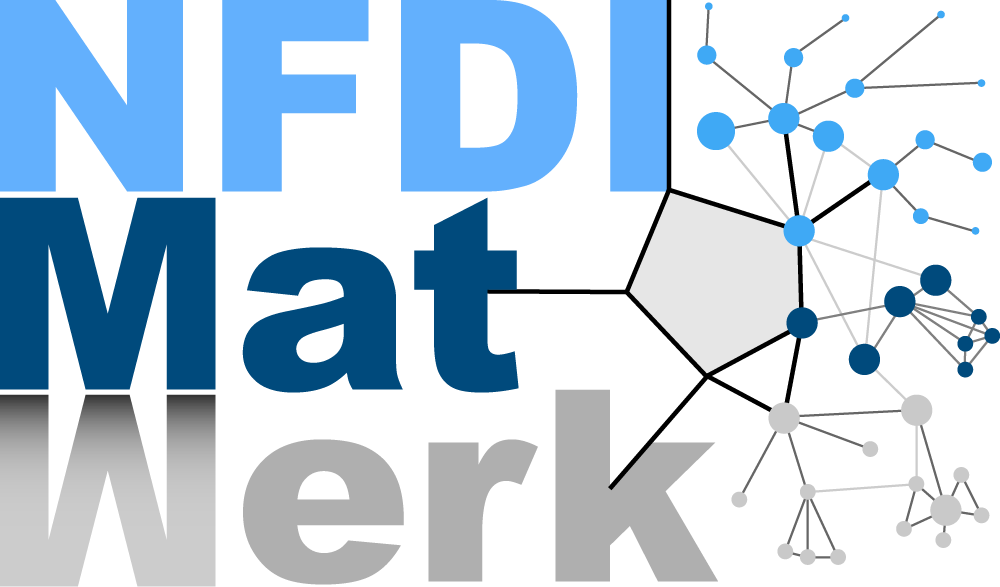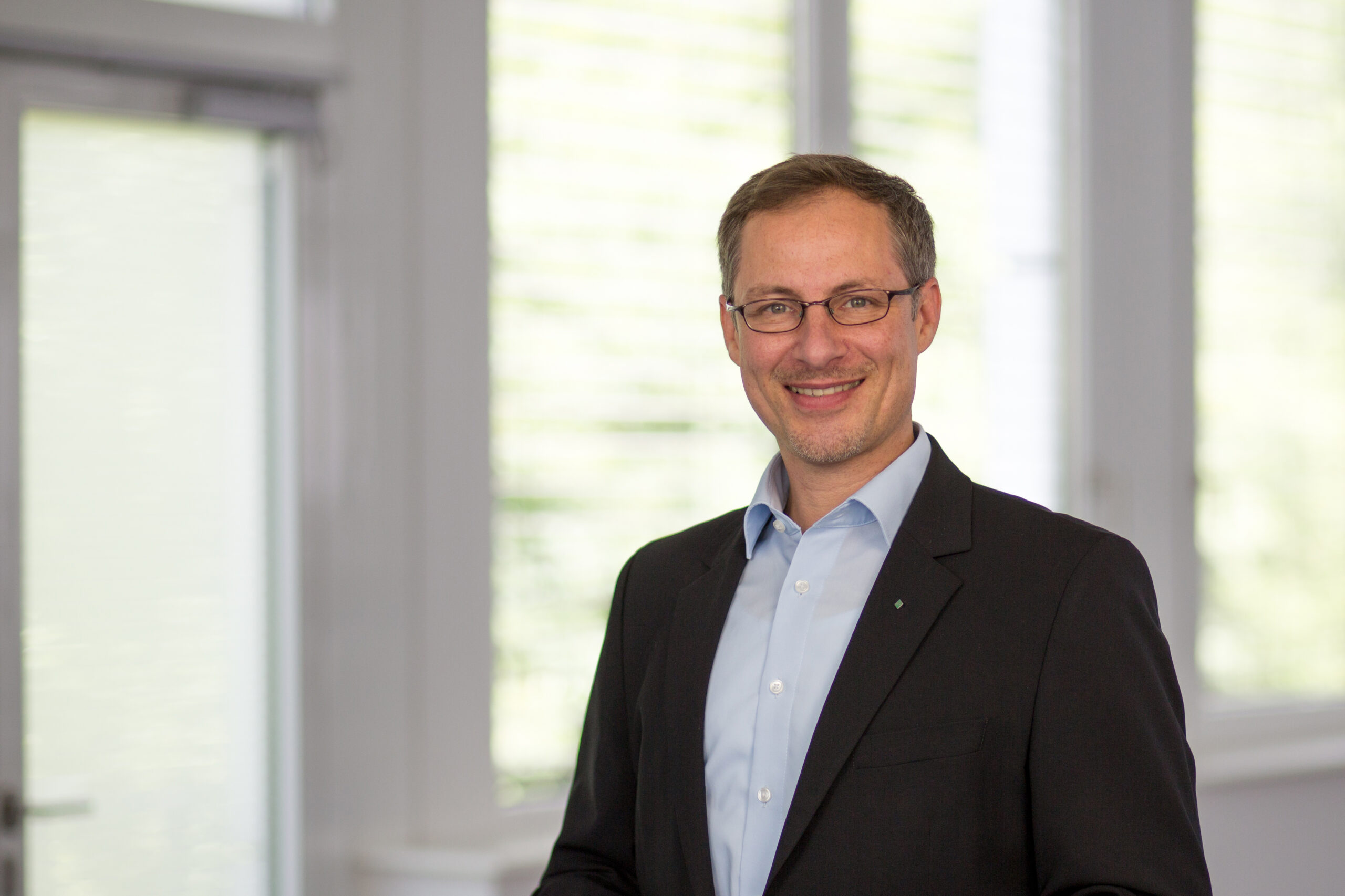
About us
One challenge here is the many structural scales and thus the various experimental and numerical methods. In turn, materials’ mechanical and functional properties are determined by their microstructure and thus also by likely changes due to their process and load histories.
The development of a database infrastructure is a community-driven process. To this end, NFDI-MatWerk aims to seamlessly integrate decentralized data and metadata, experimental and numerical workflows, and a materials ontology to maximize interoperability and reproducibility of research data processing. To this end, data use profiles of Participant Projects (PP) from different sub-disciplines are analyzed to identify the most relevant scientific scenarios within MatWerk. The resulting Infrastructure Use Cases (IUCs) help in the continuous community-driven development and review of the infrastructure.
Goals
The primary goals of NFDI-MatWerk are represented by Task Areas (TA). Overarching goals are summarized below.
- Develop and integrate a suitable materials ontology for greater interoperability between heterogeneous materials data, analysis tools, and materials models.
- Exchange and access raw material data and metadata based on FAIR principles.
- Development of a user-centric materials infrastructure guide based on Participant Projects (PP) and the resulting Infrastructure Use Cases (IUCs)
- Sharing tools and modularized workflows for experimental, theoretical, and data-driven materials science
- Involvement of the community in the development of the research data infrastructure as well as its sustainable use
Task Areas
Strategy Development (TA-SD)
- Support the digital transformation of materials science through a community-driven process.
- Monitoring, analysis, feedback of the current state in the community.
Community Interaction (TA-CI)
- Ensure active participation and lively exchange of ideas, opinions, and experiences among researchers and associated stakeholders in the MSE community
- Provide and conduct education and training for researchers, technical professionals, students.
- Planned TA-CI activities, including creating collaborative platforms, interactive workshops, and annual conferences.
Materials Data Infrastructure (TA-MDI)
- Provision of a digital materials environment (DME) to represent materials data and MatWerk-specific metadata.
- Provide services for easy storage, sharing, searching, and analysis of data and metadata.
- Ensure integrity, provenance, and authorship of data (FAIR principles).
Workflows and software development (TA-WSD)
- Development of a software framework.
- Creation, standardization, and implementation of scientific workflows, automated protocols for experiments, simulation studies, etc.
Ontologies for Materials Science (TA-OMS)
- Standardization of materials ontology, including individualized materials ontologies for homegrown tools and workflows.
- Implementation of a knowledge graph to retrieve data based on their metadata.


Fraunhofer IWM und Universität Freiburg
Speaker of the consortium
(Co-)applicant institutions and (co-)speakers:
- Dr. Philipp Slusallek, Deutsches Forschungszentrum für Künstliche Intelligenz GmbH, DFKI
- Dr. Harald Sack, Karlsruhe – Leibniz-Institut für Informationsinfrastruktur GmbH, FIZ
- Dr. Ruth Schwaiger, Forschungszentrum Jülich GmbH
- Dr. Erik Bitzek, Max-Planck-Institut für Eisenforschung GmbH, MPIE
- Dr. Peter Gumbsch, Fraunhofer-Institut für Werkstoffmechanik, IWM
- Dr. Achim Streit, Karlsruher Institut für Technologie, KIT
- Tilmann Hickel, Bundesanstalt für Materialforschung und -prüfung, BAM Berlin
- Dr. Matthias S. Müller, Rheinisch-Westfälische Technische Hochschule Aachen, RWTH Aachen
- Dr. Stefan Sandfeld, Forschungszentrum Jülich GmbH
- Dr. Frank Mücklich, Universität des Saarlandes
- Prof. Dr. Martina Zimmermann, Fraunhofer-Institut für Werkstoff- und Strahltechnik Dresden, IWS
Applicant institution
Participating Institutions
- Albert-Ludwigs-Universität Freiburg
- Bundesanstalt für Materialforschung und -prüfung, BAM
- Christian-Albrechts-Universität zu Kiel
- Deutsche Gesellschaft für Materialkunde e.V., DGM
- Deutscher Verband für Materialforschung und -prüfung e.V., DVM
- Gesellschaft für Angewandte Mathematik und Mechanik e. V., GAMM
- Helmholtz-Zentrum Geesthacht, HZG
- Leibniz-Institut für Werkstofforientierte Technologien, IWT
- Physikalisch-Technische Bundesanstalt Braunschweig und Berlin, PTB
- Ruhr-Universität Bochum
- Technische Universität Clausthal-Zellerfeld
- Technische Universität Darmstadt
- Technische Universität Kaiserslautern
- Universität Paderborn
- Universität Stuttgart

Prof. Dr. Christoph Eberl
Fraunhofer IWM und Universität Freiburg
Speaker of the consortium

Applicant institution
(Co-)applicant institutions and (co-)speakers:
- Dr. Philipp Slusallek, Deutsches Forschungszentrum für Künstliche Intelligenz GmbH, DFKI
- Dr. Harald Sack, Karlsruhe – Leibniz-Institut für Informationsinfrastruktur GmbH, FIZ
- Dr. Ruth Schwaiger, Forschungszentrum Jülich GmbH
- Dr. Erik Bitzek, Max-Planck-Institut für Eisenforschung GmbH, MPIE
- Dr. Peter Gumbsch, Fraunhofer-Institut für Werkstoffmechanik, IWM
- Dr. Achim Streit, Karlsruher Institut für Technologie, KIT
- Tilmann Hickel, Bundesanstalt für Materialforschung und -prüfung, BAM Berlin
- Dr. Matthias S. Müller, Rheinisch-Westfälische Technische Hochschule Aachen, RWTH Aachen
- Dr. Stefan Sandfeld, Forschungszentrum Jülich GmbH
- Dr. Frank Mücklich, Universität des Saarlandes
- Prof. Dr. Martina Zimmermann, Fraunhofer-Institut für Werkstoff- und Strahltechnik Dresden, IWS
Participating Institutions
- Albert-Ludwigs-Universität Freiburg
- Bundesanstalt für Materialforschung und -prüfung, BAM
- Christian-Albrechts-Universität zu Kiel
- Deutsche Gesellschaft für Materialkunde e.V., DGM
- Deutscher Verband für Materialforschung und -prüfung e.V., DVM
- Gesellschaft für Angewandte Mathematik und Mechanik e. V., GAMM
- Helmholtz-Zentrum Geesthacht, HZG
- Leibniz-Institut für Werkstofforientierte Technologien, IWT
- Physikalisch-Technische Bundesanstalt Braunschweig und Berlin, PTB
- Ruhr-Universität Bochum
- Technische Universität Clausthal-Zellerfeld
- Technische Universität Darmstadt
- Technische Universität Kaiserslautern
- Universität Paderborn
- Universität Stuttgart